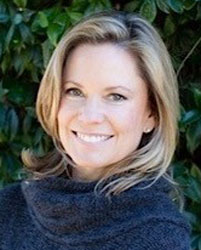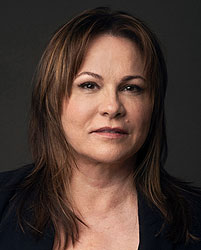Connect
Tales from the Trenches
Showrunners talk running writers’ rooms during the pandemic.
Written by Dylan Callaghan
As people worldwide hunker down at home and grapple with some level of social distancing to combat the spread of the coronavirus, the show must go on. But how? For writers, just like everyone, that is uncharted territory. How, for example, do you write a new season of an existing television series amid the isolation and fear of COVID-19?
The answer—as with so many questions around this pandemic—is that nobody knows for sure. Connect spoke with three showrunners who are currently overseeing remote writers’ rooms to discuss how this pandemic impacts writing a TV show, any advice they think might be helpful, and the pros and cons of remote rooms.
Joanna Johnson (Good Trouble)
 Advice for other writers and showrunners:
Advice for other writers and showrunners:
My advice would be to have a plan, get people working in smaller Zoom rooms, and give out actual assignments to individuals and then say, we’ll all get back online to discuss. Don’t expect to be on the virtual platform for eight hours. Try to do a couple of hours at a time, be really specific and give people things to work on off Zoom. We have a pretty big room, so we split off into smaller mini-rooms and with two or three people, the back and forth is much more fluid.
What I’ve noticed is that I think everyone really wants to do a good job. People are really grateful that we’re still getting paid and we’re writing. Everybody’s on time for every session and everyone wants to be earning their keep. It’s just a harder process.
On working from home:
When you’re at home there are just natural distractions. I have writers who have young children at home right now. It’s really hard to focus, even if your partner is taking care of the kids or whatever, you’re hearing things. It’s not as free as being at work.
On deadlines:
When you don’t have the time pressure of production, you have time to go back and noodle. I’ve always said I wish I could write a whole season and then go into production. Now I’m not sure that’s the best situation. I do kind of thrive off the pressure of having to get it done, and then I have to let it go.
So in some ways, you have to be even more disciplined now to keep up. In pre-production, I know how fast I have to be working to be ready, but this is such a strange thing because we don’t know when we’re gonna be back. So you don’t know, well gosh, should I stay up till midnight working or should I just go to bed? Should I work every weekend, or should I not? You just don’t know.
I’m trying to stay with the production schedule we had. When we do go back, I want to have gotten well ahead and not feel I wasted time. It always helps with scheduling production to have a number of scripts done. This is probably going to be a nightmare production wise because everyone’s going to be going back to production at that same time, and we share a lot of cast with other shows. It’s going to be a real puzzle to figure out.
On Zoom:
Zoom is a really great platform. If we were trying to do everything by conference calls, that’d be really rough. At least we can see each other. And when somebody’s talking, their box lights ups so you know to be quiet, and people aren’t talking over each other… So we’re still productive, but I wouldn’t say a hundred percent.
What I have found is that people are not talking as much. Maybe because they’re looking at themselves and maybe because they don’t want to talk over each other. I’m finding that the people who tended to be quiet in the writers’ room before are even quieter on Zoom. I have four staff writers, so I have some newer people in the room. They’re just learning to be in a room and how to develop the confidence to pitch, and I think it’s more intimidating on Zoom.
In a writers’ room, you feed off each other’s energy and that’s where suddenly an idea pops out, because you’re riffing. It’s hard to riff virtually. My preference would be to not work this way. The room might say they’re more focused and productive, but I don’t think that’s true. I think it’s exhausting to talk on Zoom after a while. You don’t get the energy from each other that you get face to face.
A lot of what I do is about trying to read the room and I have a very hard time doing that over Zoom. A lot of times in the room, I can read if people are not liking something and say, ok, we’re not liking this. Why? I can’t do that very well on Zoom at all.
Chris Mundy (Ozark)
 Advice for other writers and showrunners:
Advice for other writers and showrunners:
I think it’s really important to figure out how to keep your head in the show. We’ve said from the beginning, there are going to be days or weeks that are better for some than others and that’s fine. We’re all going through the same thing, but it’s also different for each of us. If you can figure out a way, however you work, to stay in the show—to keep the whole show in mind—even though you’re not all in the same place, that’s really helpful. That’s hard to do even when we’re all in the same place. Creating that space in your life and your brain is huge.
I’m so happy to have a job, so I don’t mean to complain, but it probably is a little harder on the showrunners because you’re fielding information from a lot of different places all the time, where normally it would sort of be all on the spot in one location. Also, you have to be really diligent about going back and sort of knocking on things to make sure they’re stable—if an idea is the best one you could do or just the last thing you came up with. Some of that stuff happens more naturally in a room. It’s just harder to wrap your arms around the whole.
This would be much trickier for rooms that are new and don’t have that established rhythm.
On gratitude:
Anybody with a job right now, especially if it takes some of your mental focus, it’s a godsend. I’m thankful to be trying to think up stories. Sometimes it seems futile and silly compared to what’s going on, but it’s great to be able to spend however many hours in make believe.
On working from home:
Everybody is trying to carve out their space and figure out where they can get work done and actually stay sane… And half the time, you know, people are outside trying to escape the noise of their kids or whatever, the internet is going out, and it sounds like our voices are on autotune or something. It’s like, wait, say that again? I have no idea what that was!
On Zoom, Google Docs, etc:
What I like about Zoom is it’s a way to sort of be together. It’s what we’ve got, so we’ll take it; it’s better than nothing. We’ve been Zooming as a group and then occasionally doing smaller FaceTimes. And we’ve been sharing a lot of Google Docs, kind of as our whiteboard, where everyone can read and put in their notes, we can go over them individually, and then we Zoom as a group again. It’s a combination of those things.
It’s more efficient in the sense that no one is talking over each other like they do in a room, but that’s sort of the downside at the same time… I find that in a room, the best thing is not the first thing someone says, but the third iteration, after someone says something else, or someone makes a joke. You lose a little bit of that spontaneity, the sort of drunken Thanksgiving dinner where everyone’s throwing around ideas and yelling and screaming and yet, something magic comes out of it.
On the good side, as far as the Google Docs and what people are putting out, they’ve thought about it a little more than when we’re in the room, because then you’re just tossing out any idea that comes into your head, in a good way. But there’s a focused, more thoughtful thing that happens when you’re working off a shared document.
Kerry Ehrin (The Morning Show)
 On the emotional toll:
On the emotional toll:
Speaking for myself as a creative person, I think I have a very, very strong ability to live in denial. You have to when you're writing, for a variety of reasons, because writing is an insane thing to do. You say, I'm going to sit down and just make something up and someone's going to watch it, you know? You have to have a certain amount of denial to talk yourself into doing that, to get into a fictional world, to start thinking characters are real or worlds are real... So I think writers probably are better at that part of it, when they have to compartmentalize.
On gratitude:
Think about people who were starting pilots and got shut down. What's the future of that pilot? It's very scary for everybody. And for the whole world, it's scary for everybody… We feel lucky to be making money, [but] no one knows how long it will last. No one knows. This is unprecedented.
The silver lining, if there is one in anything like this, is that you really appreciate the humanity that you all share in a more profound way. I think that always makes work better and the experience better. That is the silver lining, as far as I can see so far.
On Zoom:
We’re figuring it out… I think it’s unrealistic to think this is an eight-hour-a-day situation [on Zoom]. We’re gonna utilize it in a different way. We’ll use it more sparingly moving forward. I’ll prep for what I need people to be working on beforehand and then have them go off and work on that and deal with people a little more one-on-one.
It definitely works as a stopgap. It’s never gonna be as good as human beings together in the same room. It’s just chemicals—there is something about human beings in a room together that has a genuine power to it that you can't really take out of the equation.
It’s great for meetings that aren’t necessarily creative.
It’s crazy, but I’ve started to notice that each person’s background in Zoom, just the actual room they’re in—it’s like they’re all set-designed—they all reflect the personalities of each writer. It’s really funny.
